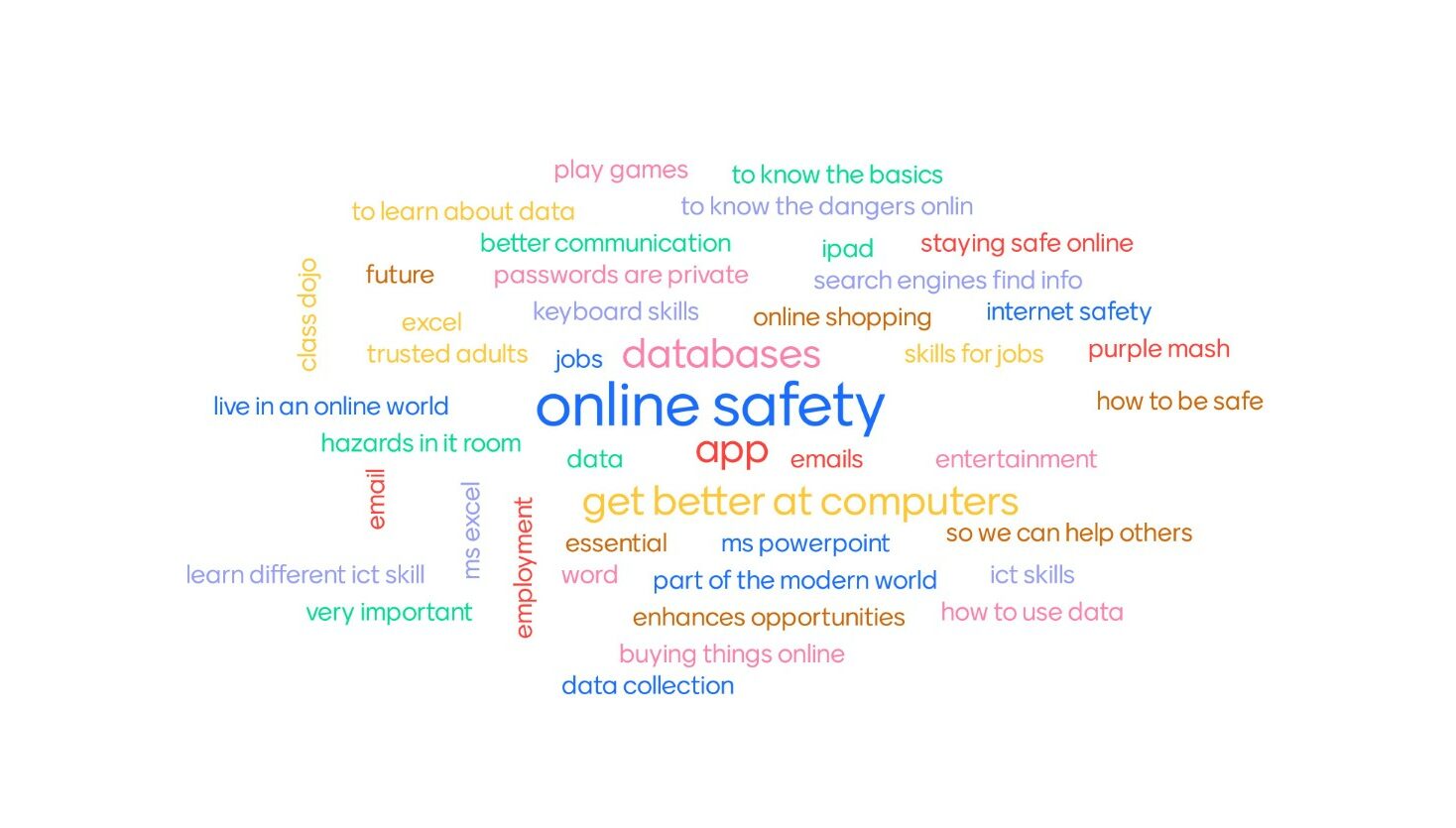Latest News:
INTENT
At Pendle Community High School, the Computing and ICT curriculum strives for authenticity, relevancy and aims to familiarise pupils with computational thinking and information systems used in the workplace. Computing also ensures that pupils become more digitally literate i.e. able to use and express themselves and develop their ideas through information and communication technology and become active participants in a digital world. The curriculum is designed to be accessible to a range of learning abilities in a specialised setting. Online safety is at the heart of our curriculum and is woven into the fabric of the PCHS Computing and ICT curriculum, either as annual stand-alone units of study or as aspects of other learning schemes. Pupils arrive at PCHS from different educational settings (special schools and mainstream) and our Year 7 curriculum acts as a bridge between the transition from primary to a secondary setting and from simulated systems to authentic applications in preparation for accredited courses and units of study in KS4 and vocational options beyond school and college. Building on prior knowledge and understanding, pupils are then better equipped to use information technology to create simple programs, use basic systems and a range of content. The Computing and ICT curriculum is broad and balanced with cross curricular links, sets high expectations and is designed to provide appropriate challenge to all pupils.
IMPLEMENTATION
Computing and ICT in Pendle Community High School is based on different topics throughout the year but planned so that pupils can achieve depth and progression in their learning. The primary strands that form the curriculum are Computer science (logical thinking with aspects of programming), information technology (using a range of information systems to create a variety of content to suit different purposes) and digital literacy (using ICT to express themselves and develop their ideas).
Existing knowledge is checked prior to the commencement of each topic ensuring that teaching is planned accordingly from the pupils’ starting points identified through the assessment system. Topics are sequenced to provide maximum progression of skills and at the end of each topic, key content knowledge is reviewed and consolidated for pupils to demonstrate their understanding of the topic.
Independent learners are encouraged to be inquisitive, ask questions and work independently. The curriculum is designed to provide challenge and all activities will be appropriately matched for individual learning, as well as encouraging problem solving, teamwork and discovery of the digital world.
Supported and experiential learners follow a thematic approach, where many areas of the curriculum are connected and integrated within a theme. These classes work in smaller groups whose learning is met primarily through experiences and activities which are multi-sensory and stimulate learning through kinesthetic approaches and are supported through structure and routines. This curriculum is used to enhance early learning and development in pupils across school who present with sensory issues and those who learn best via a highly experiential, multi-sensory approach.
Computing and ICT is well resourced and specific resources are mapped to specific groups and topics to support effective teaching and learning. Staying safe in a constantly connected world throws many challenges for our vulnerable learners and the dynamic nature of online threats requires constant knowledge and action, the PCHS Computing and ICT curriculum requires all pupils to annually visit learning about online threats and harms in our online safety unit. Online safety is also infused in other units of study (e.g. KS4 Online Basics involves learning and using emails and being aware of harms and threats such as phishing, spam, junk and how to respond to those threats e.g. report, don’t reply, block).
IMPACT
As a pupil progresses through the school, they develop a knowledge of computational thought as well as experience a broad range of authentic applications and learn about online safety including potential threats and harms. Skills and knowledge taught in Computing and ICT are transferable and support pupils to do more and engage more in other curriculum areas. Teachers have high expectations and evidence of this is demonstrated in progress data and KS4/ KS5 accreditation results. Impact is also recognised in pupils’ contributions, questions and enthusiasm in lessons, assemblies and how their digital skills are evidenced across other curriculum areas.
Pupils further develop their abilities in the 4 key components of the curriculum as well as improving writing, reading and enquiry skills. Some pupils will become more confident in analysing and improving their own work. The depth of knowledge that pupils will attain will vary but all will demonstrate progress from their individual starting points.
Pupils will have also learnt about careers and related work opportunities that are accessible for them in the local and wider community. This is enhanced by visitors to school, educational visits and fieldwork which provide opportunities for further relevant and contextual learning.
As information technology is in our everyday lives, pupils leave PCHS having learned and developed skills in a range of meaningful technologies and their knowledge and experiences will have been broadened in preparation for life beyond school and college. Pupils will leave PCHS better informed with regards to staying safe in a continuously connected world.
Computing Lead
Sajjad Bhatti
sbhatti@pchs.lancs.sch.uk
Pupil Voice: Why we think it is important to learn about computing in school.

CONTACT US
Pendle Community High School & College
Pendle Vale Campus, Oxford Road, Nelson, Lancashire, BB9 8LF
Tel: 01282 682260
Headteacher: Debra Grogan
Chair of Governors: Trevor Ashton (Address c/o above)
Receptionist: Sophie McCamon
E-mail: smccamon@pchs.lancs.sch.uk
SENDCO: Stephanie Curtis
Email: scurtis@pchs.lancs.sch.uk
CONNECT WITH US
Paper copies of the information on our website can be requested via email.

